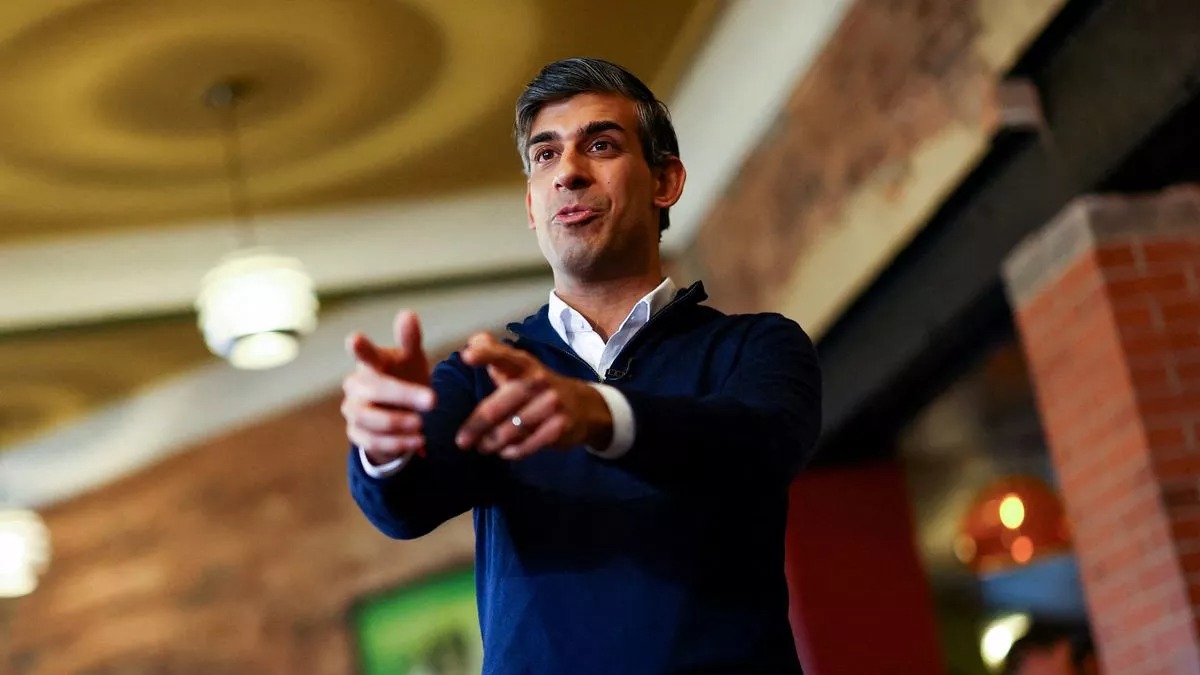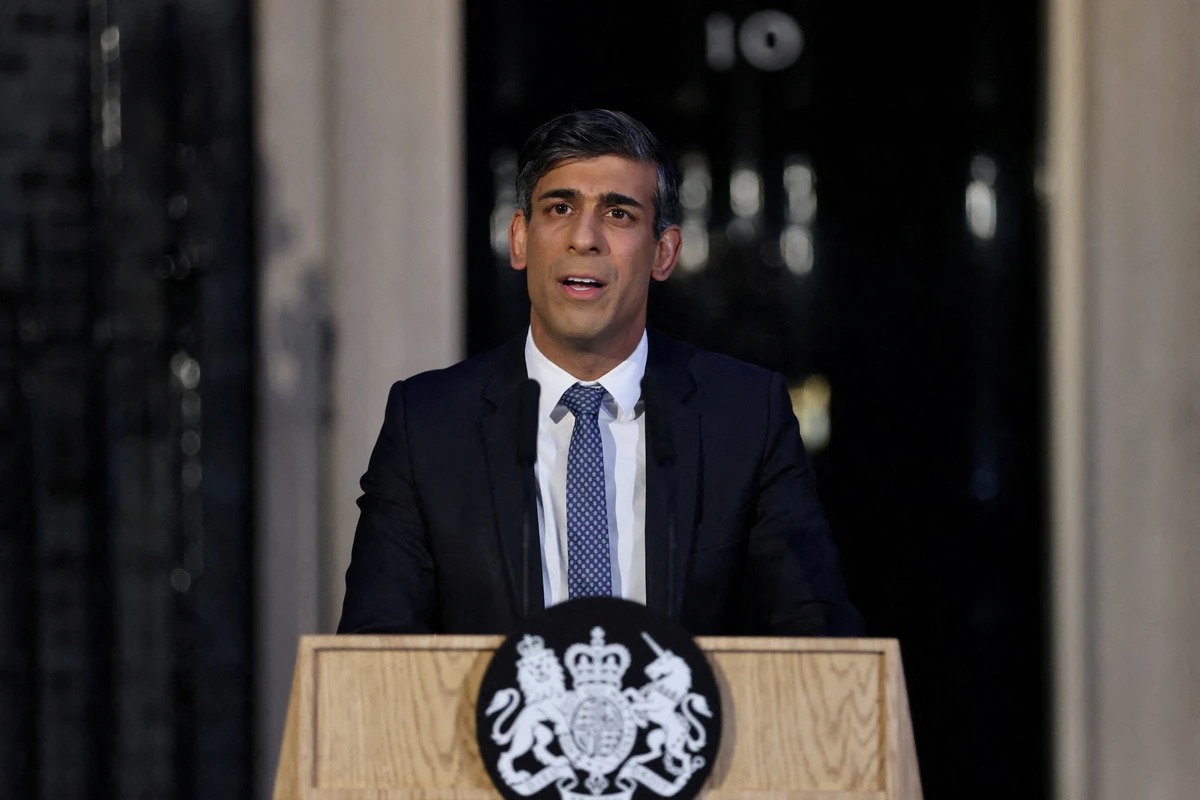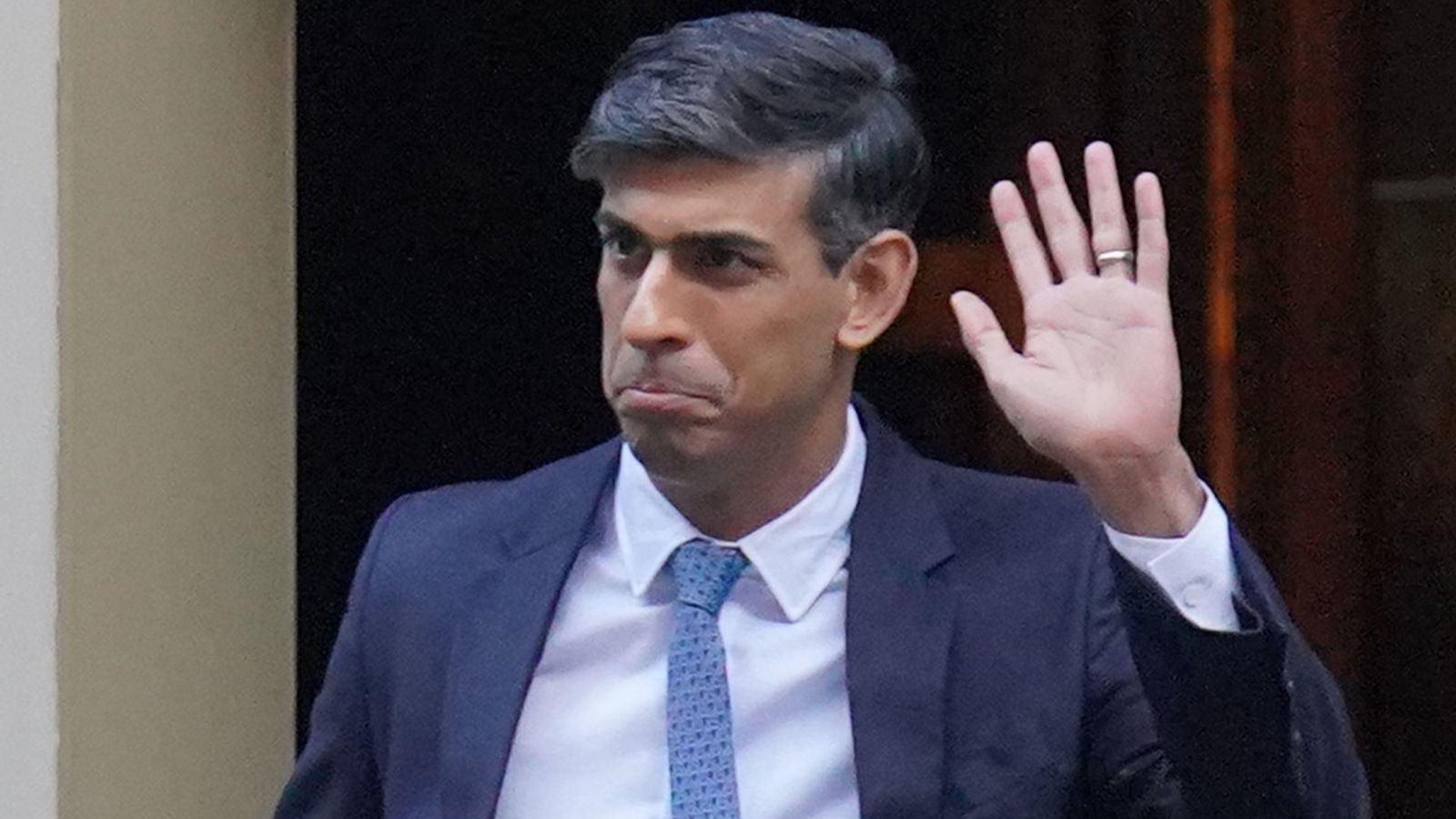A former No 10 adviser has sounded a warning about the potential for internal Conservative party turmoil to “paralyze” the Prime Minister and his inner circle.
Amid escalating questions about Rishi Sunak’s future, exacerbated by dismal opinion poll ratings, a lackluster response to the Budget, and the Frank Hester race row, concerns are mounting within Tory ranks.
Experts in Downing Street crisis management foresee challenges for Mr. Sunak and his advisers in effectively governing amidst a “febrile” parliamentary atmosphere.

Rishi Sunak (Credits: The Mirror)
The specter of a rebellious party threatens to distract from governance, making even the Prime Minister’s international travel a perceived risk.
A former No 10 insider identified three key problems facing a prime minister in such circumstances. Firstly, the perpetual speculation over leadership detracts from government focus, leaving little room for bold policy initiatives.
Secondly, limited maneuverability hampers the implementation of impactful policies, as attention is consumed by managing internal dissent.
Thirdly, the risk of the Prime Minister leaving the country during times of internal turmoil, akin to Margaret Thatcher’s Paris visit during a leadership challenge, raises concerns about continuity of leadership and potential mishaps.

Rishi Sunak (Credits: GB News)
The absence of the Prime Minister during sensitive periods, as observed during Boris Johnson’s Nato summit in Madrid amidst controversy surrounding his deputy chief whip, underscores the anxiety within No 10 about being absent during turbulent times. The inherent risk of being away while party tensions simmer adds to the apprehension.
The toll of grappling with party management issues is substantial, diverting significant resources away from policy formulation and communication.
Every instance of internal discord magnifies the challenges faced by the Prime Minister in conveying his message to the electorate, especially in the lead-up to crucial elections. The convergence of party turmoil and governance challenges poses a formidable obstacle for the Prime Minister and his team.
The imperative to navigate internal dissent while maintaining focus on policy objectives underscores the delicate balance required in contemporary political leadership. As external pressures mount, the capacity to weather internal storms becomes ever more critical for effective governance.
























